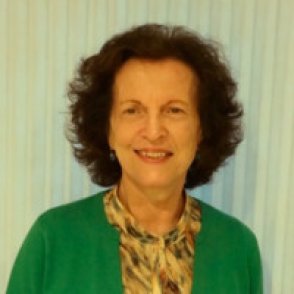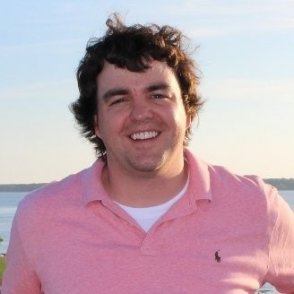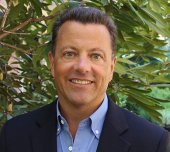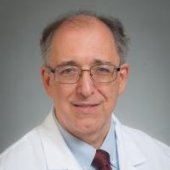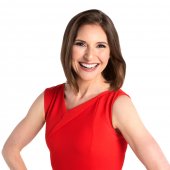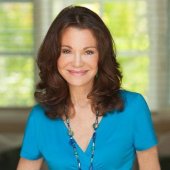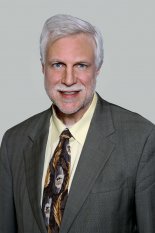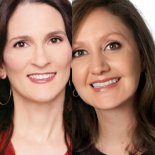Canceled Clients (4762)
Children categories

Train Your Body (438)
The show for fitness buffs or beginners. Expert guest from the American College of Sports Medicine (ACSM) discuss all areas of fitness, nutrition, athletics and sports medicine.
View items...
Staying Well (382)
RadioMD’s “talking” Health A-Z hosted by senior health correspondent, Melanie Cole, MS. Melanie interviews experts in the world of health, wellness, fitness and medicine.
View items...
Healthy Talk w/ Dr. Michael Smith (698)
Integrative physician, Michael A. Smith, MD is committed to providing listeners with the most current health information available.
View items...
Naturally Savvy (899)
Registered Holistic Nutritionist, Andrea Donsky and health expert Lisa Davis discuss their passion for living a natural, healthy lifestyle.
View items...
Eat Right Radio (48)
EatRight Radio, with experts from the Academy of Nutrition and Dietetics, discusses food and nutrition topics, healthy weight, allergies and health conditions, healthy aging, food safety and so much more. Give us 10-minutes and we'll give you the important information and expert advice from registered dietitian nutritionists to help you eat right, feel better, and live a healthier life. Hosted by Melanie Cole, MS.
View items...
Sharecare Radio (235)
Sharecare Radio, hosted by Sharecare’s own Dr. Darria Long Gillespie, SVP of Clinical Strategy at Sharecare, will appear live every Tuesday from 12 to 1 p.m. EST on RadioMD. Dr. Darria will break down the top health news of the week, pull in experts from around the country on a wide array of health topics and answer listeners’ live questions on all things health.
View items...
Wellness for Life (455)
On Wellness For Life Radio you will learn practical, easy-to implement tips to improve your life and start feeling better — the natural way.
View items...
The Wizard of Eyes (163)
Dr. Robert Abel Jr. talks about many of the important and unrecognized parts of our visual system which we so often take for granted. The show covers the usual common ocular disorders with an East/West approach to both prevention and therapy. The eye-brain connection is presented with information about memory retention, Alzheimer's, the myopia epidemic, and many more subjects. Dr. Abel discusses how the eye and vision are connected with remote parts of the body including your gut flora, musculoskeletal system, blood pressure, drugs and lifestyle. practical and simple health tips.
View items...
Code Delicious with Dr. Mike (135)
Code Delicious with Dr. Mike breaks all the rules. Unabashedly confronting the questions, concerns and conundrums that continually confuse both public and experts alike; Dr. Mike takes us on a tasty trip of inquiry.
View items...
CLEAN Food Network (98)
This show is a call to action for all the clean eating revolutionaries that care about their health and how and what they eat. Non-GMO, natural, organic . . . food the way nature intended. The clean food movement is huge and is growing exponentially. This companion program talks to experts in food preparation, healthcare, celebrities, and even those companies that care enough to provide the best, wholesome, organic foods and groceries.
View items...
Talk Healthy Today (213)
Looking to create your best self? Whether it’s good-for-you lifestyle hacks, smarter ways to supplement, or tasty tips to fuel optimal health, Talk Healthy Today brings you the latest research, tools, and common sense tips you need to get and stay healthy... starting today!
View items...
Be a Doer (17)
Be A Doer features master coach and TV personality John Abdo as he shares health and fitness tips aimed at getting you in shape – and keeping you there!
View items...The Power of Probiotics (3)
Probiotics is a major global industry. But like any industry, it had to have a beginning. Natasha Trenev is the daughter of an Eastern European family where the manufacturing of yogurt was a generational business. When Natasha emigrated to the US in the 1960’s, she brought with her 750 years of family experience with probiotics – and introduced the science (and the term itself) to her new country. Today, Natasha’s California-based Natren, Inc. is the recognized pioneer in probiotics and company founder Natasha Trenev has earned recognition as the Mother of Probiotics. Her more than 50 years of work in natural health is at the core of the unparalleled success of her company – and you will benefit from her depth of expertise in each and every episode of THE POWER OF PROBIOTICS.
Probiotics are live microrganisms that are commonly referred to as ‘friendly,’ ‘good’ or ‘healthy’ bacteria that function to help maintain the natural balance of organisms in the intestine. Throughout Natasha’s extensive work in the field of probiotics, she has always been amazed by how nature provides the very ‘good’ bacteria that can help overpower ‘bad’ bacteria to keep our digestive tracts functioning at peak performance. Properly cultivating friendly bacteria and ensuring their potency is at the core of the Natren Process. Natren is cited – by retailers, by the medical community and by consumers – as the best probiotic supplement available. Only Natren carefully chooses its probiotic cultures, formulates and manufactures its industry standard probiotics in its own plant and utilizes a specially-formulated oil matrix to protect probiotics bacteria to survive until they reach their destination in the upper small intestine. This is why only Natren is the most trusted probiotic supplement on the market. Truly, where other probiotic supplements promise – Natren Delivers.
To learn more about how probiotics can benefit your health, we are proud to introduce you to THE POWER OF PROBIOTICS with The Mother of Probiotics, Natasha Trenev.

Your Brain Health (24)
Noted Los Angeles-based neuroscientist and media personality Dr. Kristen Willeumier launches Your Brain Health with Dr. Kristen Willeumier, a podcast series that explores the latest news and information in the burgeoning science of brain health.
View items...Additional Info
- Segment Number 1
- Audio File naturally_savvy/ns901.mp3
- Featured Speaker Myra Giberovitch, MSW
- Book Title Mom Hacks: 100+ Science-Backed Shortcuts to Reclaim Your Body, Raise Awesome Kids, and Be Unstoppable
-
Guest Bio
Myra Giberovitch is an educator, social worker, consultant, author and professional speaker. She is an adjunct professor at the McGill University School of Social and author of "Recovering from Genocidal Trauma." Growing up Myra's mother used to say, “In life we never know what lies ahead. What’s important is to adapt to circumstances you can’t change, no matter how difficult.” She made everyday choices to control her environment. One of them was choosing to have a positive attitude and taking action when responding to situations. She persevered and never gave up.
Myra is filled with hope and positive regard for her fellow human beings. She chooses to focus on our common humanity, resilience, and kindness and all the goodness that is out there. - Length (mins) 23:00
- Waiver Received No
- Host Andrea Donsky, RHN & Lisa Davis, MPH
Additional Info
- Segment Number 1
- Audio File wellness_for_life/wl442.mp3
- Featured Speaker Jarad Wilson, PhD
- Guest Website RayBiotech
- Guest Twitter Account @RayBiotech
-
Guest Bio
Dr. Jarad Wilson joined RayBiotech in 2014 after completing his post-doctoral studies. He is currently in charge of the C & G series product lines, and he also manages business development. Dr. Wilson has a scientific background in Immunology, Virology, and protein detection technologies, graduating from Georgia Tech with his BS and then Emory University with his PhD.
Dr. Wilson’s research focus was on immunological mechanisms of control for persistent viral infections. He has multiple publications in high tier journals, spanning both his doctoral studies and work with RayBiotech.
Currently at RayBiotech, he spends time in roles involving technical consulting as well as sales and marketing, while also helping develop new and novel protein arrays for RayBiotech. - Length (mins) 28:02
- Waiver Received No
- Host Susanne Bennett, DC
Additional Info
- Segment Number 1
- Audio File wellness_for_life/wl438.mp3
- Featured Speaker Michael Lewis, MD, MPH, MBA, FACPM, FACN
- Organization BrainCARE
- Guest Website +PlusCBD
-
Guest Bio
Michael Lewis, MD, MPH, MBA, FACPM, FACN, is one of Americas most trusted physicians. He is a retired Army Colonel who served our country for over 31 years. He has advised countless professional athletes, top ranking military officials, and senior executives at the Department of Defense and the U.S. Government on brain optimization.
He is an expert on nutritional interventions for brain health, particularly the prevention and rehabilitation of brain injury. He is a graduate of the U.S. Military Academy at West Point and Tulane University School of Medicine. Dr. Lewis is board-certified and a Fellow of the American College of Preventive Medicine and the American College of Nutrition. He completed post-graduate training at Walter Reed Army Medical Center, Johns Hopkins University, and Walter Reed Army Institute of Research.
His private practice, Brain CARE, is located in the Washington DC suburb, Potomac, Maryland, where he takes a comprehensive approach to concussion recovery, brain injury, ADHD, sports and cognitive performance, and brain health issues. His pioneering work in the military and since has helped thousands of people around the world and regularly featured in the media, radio, podcasts, webinars, scientific conferences, and television including CNNs Sanjay Gupta MD show. Dr. Lewis is a consultant to the U.S. Army and Navy as well as several organizations and companies around the world, and a founding member of the Pop Warner Youth Football Medical Advisory Board. - Length (mins) 28:48
- Waiver Received No
- Host Susanne Bennett, DC
Additional Info
- Audio File christiana_care/crc022.mp3
- Doctors Ellison, James
- Featured Speaker James Ellison, MD MPH
-
Guest Bio
Dr. Ellison was born in Minnesota and raised mostly in California, but higher education opportunities lured him to Boston, where he trained to be a psychiatrist at the Massachusetts General Hospital, Subsequently, he spent several decades working as a general and geriatric psychiatrist in several hospitals in or near Boston. He also received a Master of Public Health degree from the Harvard School of Public Health. Throughout his career, he has developed and led clinical and research programs while also promoting education of the public and of his professional peers. He has worked in diverse settings including emergency psychiatry services, inpatient and outpatient clinical settings, managed care, and private practice. Since 1999, he has focused on mental health issues of older adults.
Dr. Ellison’s clinical specialties include the assessment and treatment of neurocognitive disorders and mood disorders in later life. His research interests have addressed cognitive and behavioral aspects of these conditions and he has served as a site Principal Investigator in multiple trials of new medications for the treatment of Alzheimer’s Disease. He is also the Editor in Chief of the Journal of Geriatric Psychiatry and Neurology and the author and/or editor of several books about psychiatry.
Dr. Ellison moved to Delaware in 2015 to become the first Swank Foundation Endowed Chair in Memory Care and Geriatrics. His objective in this role is to enhance the care of older adults with neurocognitive disorders in Delaware by increasing their access to state of the art diagnostic tools, clinical assessment and treatment approaches, caregiver support resources, and research trials. He is privileged to work as a geriatric psychiatrist embedded in an interdisciplinary consultation team that includes geriatricians, social workers, a neurologist, and a nurse practitioner devoted to this shared goal of treating people with mild to severe cognitive difficulties and related emotional and behavioral conditions. His program, the Swank Center for Memory Care and Geriatric Consultation, is Delaware’s only dedicated outpatient program serving this purpose.
Dr. Ellison is the proud father of two college-age young men who share his passion for community service. His partner, Kate, works as McLean Hospital’s fitness director in Belmont, MA. When not working, Dr. Ellison enjoys attending concerts, playing the violin, reading, and looking for time to keep fit -
Transcription
Melanie Cole: This is ChristianaCares, Swank Memory Care Podcast Series. I'm Melanie Cole and today we're talking about how a memory clinic can be of help. Our speakers in this podcast series represent the Swank Center for Memory Care and Geriatrics. Delaware's first and most comprehensive outpatient program dedicated to the assessment and assistance of older adults and their caregivers coping with dementia and other neurocognitive disorders. Joining me is Dr. James Ellison. He's the Swank Foundation Endowed Chair in Memory Care and Geriatrics at ChristianaCare. Dr. Ellison, it's a pleasure to have you join us again today. What is a memory clinic? Tell us.
Dr. Ellison: A memory clinic is an outpatient service and it can be designed in lots of different ways, but the overall idea is to provide consultation to primary care and to individuals and families who are concerned about their cognitive health. We call it a memory clinic because most of the people who call us up say that they're having trouble remembering things, but in the clinic we're able to evaluate in a much finer way the different elements of cognitive functioning that lead into memory complaints. So, for example, a person might have attention problems or they might have difficulty with spatial representations or with language, and all of those things can show up as concerns about memory. If a person can't find the right word, they may feel that it's a memory problem or if they lose their way they might attribute it to a memory difficulty, but it can be more complex than that.
Host: Well, so then when I suppose is, is the question, when would someone be referred to a memory clinic? What would have to necessitate that kind of referral?
Dr. Ellison: You and I have discussed some topics in dementia previously and when we've talked about dementia, one of the important points that comes up is that we don't have a definitive cure yet for dementia. But one of the things that we can do is prevention. So in a memory clinic, we like to see people who are at an early stage of memory difficulty because we can advise them about the nature of their problem, whether there are any treatable medical conditions that might assist them and what kind of lifestyle changes they can make to improve their cognitive functioning.
Host: So tell us about what that looks like for patients and even for their families. Dr. Ellison, are the families involved in these clinics? Tell us what it looks like for the patient and what these clinics are like.
Dr. Ellison: Many people who have cognitive difficulties, lack awareness that they have those kinds of problems. So for example, you might have an older relative who asks you the same question repeatedly and it seems like they're not paying attention or listening to your answer, but in reality, they're listening. They're not making a new memory. Or you might notice that an older relative of yours has some trouble keeping track of appointments. Remembering to be where they're supposed to be, remembering a conversation they had recently or they might be leaving the door unlocked inappropriately or having safety issues around the house with the stove. Those are all reasons why a person should be referred to a memory disorders clinic. They may choose first to go to a primary care clinician and have some preliminary evaluation, but in the long run, a memory clinic can provide some expert assessment of the causes of the memory problem and also characterize what's going on and recommend a course of management that may be helpful in preventing further decline or slowing it down.
Host: Dr. Ellison, when patients come to the clinic, have you seen in your experience that they are resistant because they're afraid that if they attend a clinic like this, they'll lose their driver's license or they won't see their primary care provider or any of these kinds of worries they might have about attending a clinic?
Dr. Ellison: Yes. One of the biggest concerns that faces older adults. One of the biggest fears is concern about losing memory and that's a very reasonable fear because up to 40% of people by age 85 have significant memory difficulties. So this is a common problem as we age and it ranges from kind of normal forgetfulness and cognitive changes that are normal for aging to full blown dementia where a person loses their independence, it's natural that a person worries about losing their memory and so they get very frightened if somebody points out to them that they may be having problems more than would be expected for age. We see this of course when they come to the memory clinic and one of the most important things that we can do is reassure people who have normal memory aging that this is not a disease process and we don't expect it to become a disabling process.
That's a real advantage of getting an evaluation that can assess what kind and what degree of cognitive difficulty there is. Now, some of the people who come to our clinic also worry about the kind of implications that a diagnosis of mild cognitive impairment or another neurocognitive disorder might have on their life. For example, if they haven't already applied for long-term care insurance, a diagnosis of a neurocognitive disorder on their medical record could interfere with their getting that. So it's best to take care of that when you're healthy and before any problem has developed. There also is the concern that some older adults have that if they go to the memory clinic, their driver's license will be taken away or their driving privileges will be curtailed. So let me say a word about that. One of the types of evaluations that we're concerned about in a memory disorders clinic is evaluating home safety and driving safety. So we'll typically ask a person whether they've had any fender benders or scrapes, whether they've run red lights or had difficulty finding their way when they're driving.
And if a caregiver or relative is with them, we'll often ask whether that person has driven with them. Unfortunately with severe cognitive impairment, most drivers don't stop driving until they have a significant motor vehicle accident. That's the event that usually ends a person's driving career with severe cognitive difficulty for their safety, for the safety of the patient and for the safety of public. We want to make sure that we help people honestly and frankly assess their driving safety and make an informed decision about whether it's appropriate for them to continue driving or make different transportation arrangements, but be assured that nobody in a memory clinic ever takes away a person's license or tells them they can't drive. What we might tell them if it's appropriate, is that they should have a driving evaluation on the road only really with a driving evaluation and a normal test for driving knowledge. Can driving safety be truly assessed in an accurate way. The tests that we do in a memory clinic merely help us suggest whether a further driving evaluation at the Department of Motor Vehicles or a driver rehabilitation specialist tester is appropriate.
Host: Before we wrap up, tell us some of the types of therapy that might be available. If you do discover mild cognitive impairment or even just age related memory issues that some people experience, what can you do for them? What are the types of therapy available?
Dr. Ellison: There is no medication that reverses memory changes and there's no particular type of medical therapy that we know of that can bring back age associated memory loss. However, there are a number of lifestyle interventions that can be very helpful, so we often talk with our patients about physical activity. We talk with them about nutrition and appropriate diet habits and weight control. We talk with them about getting enough sleep, exercising their mind, remaining involved with a sense of purpose and connecting with other people, and these are things that can help a person age cognitively in a healthier way. In addition to that, in a memory clinic, we would assess a person's medications and try and understand whether they're taking any medicine that be harmful to their cognitive functioning and we would work with their primary care clinician to reach a better plan for their medications.
We wouldn't take control of their medications, so much as we would collaborate with a care team in order to make their medications more helpful and appropriate. Then we also assess things, sleep disorders, medical disorders, substance use and all of those things help us understand where there might be medical interventions that would help a person age cognitively in a healthier way. And then finally, there are significant numbers of people in the older adult population who suffer from generalized anxiety or from some other anxiety disorder or from mild to moderate depression. And these behavioral health disorders can really affect cognitive functioning and interfere with memory. So we like to identify that and make sure that a person receives appropriate treatment.
Host: Then offer your advice. Dr. Ellison, because you are such an expert in this, what do memory clinics contribute to the overall context of care for the aging population? Tell us what you'd like us to know about memory clinics in general and specifically the Swank Memory Center.
Dr. Ellison: The Swank Memory Center and others, similar memory clinics. And there are a number of these around the country are often multidisciplinary teams of outpatient clinicians who work in a variety of disciplines, neurology, primary care, behavioral health, nursing, neuropsychology, and social work, all can be part of this kind of this team. With a multidisciplinary team that has expertise in assessing, recognizing, and managing neurocognitive disorders. The memory clinic can contribute to a person's overall health and healthy aging by collaborating with their primary care treatment team to develop a good plan for health and lifestyle.
Host: Thank you so much Dr. Ellison for joining us and sharing your incredible expertise today and that concludes this episode of ChristianaCare, Swank Memory Care Podcast Series. To learn more about programs or services or to schedule an evaluation at the Swank Memory Center, Delaware's first and most comprehensive outpatient program dedicated to the assessment and assistance of older adults and their caregivers coping with dementia and other neurocognitive disorders, you can call (302) 320-2620. Or you can visit Christianacare.org/SwankMemoryCare for more information and to get connected with one of our providers. Please remember to subscribe, rate, and review this podcast and all the other ChristianaCare podcasts. I'm Melanie Cole. - Hosts Melanie Cole, MS
Additional Info
- Segment Number 1
- Audio File naturally_savvy/ns900.mp3
- Featured Speaker Darria Long Gillespie, MD
- Book Title Mom Hacks: 100+ Science-Backed Shortcuts to Reclaim Your Body, Raise Awesome Kids, and Be Unstoppable
- Guest Website Dr. Darria
- Guest Facebook Account https://www.facebook.com/DrDarria/
- Guest Twitter Account @DrDarria
-
Guest Bio
Dr. Darria Long Gillespie is a Yale- and Harvard-trained emergency physician, author of national bestselling book Mom Hacks (Hachette), regular TV contributor on Headline News, CNN, The Dr. Oz Show, and other network shows, and a TEDx speaker.
A mom of two herself, Dr. Darria has become the national "go-to" doctor for combining the best science with the highest-yield shortcuts to make your life healthier, better, and EASIER. She helps audiences everywhere learn the value of tiny, incremental changes, get rid of the constant feeling of “Crazy Busy” and find their feeling of “I’ve GOT this!” again.
Dr. Darria is also a Clinical Assistant Professor at the University of Tennessee School of Medicine. She received her MBA from Harvard Business School, MD, from the University of Rochester School of Medicine, and residency training from Yale School of Medicine. - Length (mins) 21:09
- Waiver Received No
- Host Andrea Donsky, RHN & Lisa Davis, MPH
Additional Info
- Segment Number 1
- Audio File wellness_for_life/wl440.mp3
- Featured Speaker Donna Gates, MEd, ABAAHP
- Book Title The Body Ecology Diet
- Guest Website Body Ecology
- Guest Facebook Account https://www.facebook.com/BodyEcology
- Guest Twitter Account @DonnamGates
-
Guest Bio
Donna Gates, MEd, ABAAHP, is the international best-selling author of The Body Ecology Diet: Recovering Your Health and Rebuilding Your Immunity and The Body Ecology Guide to Growing Younger: Anti-Aging Wisdom for Every Generation. For the last 25 years, she has been on a mission to change the way the world eats.
Her first book, The Body Ecology Diet, introduced the world to a sugar-free, gluten-free, casein-free, and probiotic-rich diet and a way of life that is now followed by tens of thousands of people around the world. The Diet grew to popularity initially by word of mouth and all these years later, still stands the test of time.
Donna’s groundbreaking work has been instrumental in transforming the natural foods industry. In 1994, Donna introduced a powdered blend of stevia rebaudioside to the U.S. and it has since become the safest and most popular natural sweeter in the world. She pioneered and championed foods like young coconut kefir and coconut oil, and coined the phrase “inner ecosystem” to describe the still undiscovered network of microbes in our gut, now called the “Microbiome.”
To restore balance and thriving gut health, Donna’s innovative approach to detoxing features four actions of healing – creating energy, correcting digestion, cleansing out the toxins, and conquering any infections. She also began teaching about the long-forgotten health benefits of fermented foods to provide the diversity needed in a healthy gut.
Over the past 30 years, Donna has become one of the most respected authorities in the field of digestive health, diet, and nutrition. In 2013, she completed an Advanced Fellow with the American Academy of Anti-Aging Medicine. Donna’s extensive research and keeps her ahead latest passion is nutritional genomics.
She will soon launch a new book and a training program for practitioners that confirms that Body Ecology is a Gut Smart/Gene Smart way of life. - Length (mins) 30:10
- Waiver Received No
- Host Susanne Bennett, DC
Additional Info
- Segment Number 1
- Audio File naturally_savvy/ns899.mp3
- Featured Speaker Suzanne Somers
- Book Title A New Way to Age: The Most Cutting-Edge Advances in Antiaging
- Guest Website Suzanne Somers
- Guest Facebook Account https://www.facebook.com/suzannesomers
- Guest Twitter Account @SuzanneSomers
-
Guest Bio
Suzanne Somers is one of America’s most popular and beloved personalities. In a multifaceted career that has spanned more than three decades, she has achieved extraordinary success as an actress, singer, comedienne, New York Times bestselling author, Las Vegas Entertainer of the Year, entrepreneur, and lecturer.
She is the voice and face of alternative medicine. She received an Emmy nomination as Outstanding Host for “The SUZANNE Show,” her weekly Lifetime Network talk show, which provides a thought-provoking morning show alternative with in-depth information on health and wellness in a casual, entertaining format. Suzanne’s fun, smart, empowering talk show, “Suzanne Somers’ Breaking Through,” airs online on the CafeMom Studios YouTube channel. - Length (mins) 36:37
- Waiver Received No
- Host Andrea Donsky, RHN & Lisa Davis, MPH
Additional Info
- Audio File christiana_care/crc020.mp3
- Doctors Lenhard, M. James
- Featured Speaker M. James Lenhard, MD, FACP, FACE
-
Guest Bio
M. James Lenhard, M.D., FACE, FACP, is medical director of Christiana Care Health System's Diabetes & Metabolic Diseases Center, the Diabetes & Metabolic Research Center and Christiana Care's Weight Management Center.
Learn more about M. James Lenhard, MD, FACP, FACE -
Transcription
Melanie Cole, MS (Host): Welcome. This is ChristianaCare’s weight management podcast series. I'm Melanie Cole and today we’re talking about weight loss and management conditions in the realm of our weight management program at ChristianaCare. Our speaker in this podcast series represents ChristianaCare’s weight management, a program that uses healthcare experts such as dieticians, exercise, and behavioral specialists to help people lose weight and keep it off. Joining me is Dr. James Lenhard. He’s the section chief in endocrinology and metabolism and the medical director of metabolic health services at ChristianaCare. Dr. Lenhard, pleasure to have you joining us again today. Tell us about the complicated world of obesity and why it’s sometimes so hard to treat.
M. James Lenhard, MD, FACP, FACE (Guest): Obesity is really complicated. There's a whole bunch of things that happen in the human body to control how much food we eat and intake and the energy we expend. There’s hundreds of different hormones and neurotransmitters that are involved in this. No one person is quite the same as the next one. A lot of people have individual needs and problems that are different from other people that come down the road.
Host: Well, that’s certainly true. A while back the AMA recognized obesity as a disease, Dr. Lenhard. So give us a working definition of this disease of obesity.
Dr. Lenhard: Obesity is a condition of weighing more than what is good for your health. It’s really an epidemic. It’s bigger than both the tobacco and opioid epidemics in terms of mortality and cost. So it’s a really large problem.
Host: What is defined as obesity? If a person is 10 pounds overweight, 20 pounds overweight? What is considered overweight and what’s considered obese? What’s the difference?
Dr. Lenhard: We have a scale that we use called the body mass index or BMI for sure. It’s not like the doctor or the nurse practitioner looks at someone and says, “Boy, you look like you're overweight.” We use a scale. It’s available online if you do a Google search for BMI. It’s basically measured in kilograms per meter squared. A normal healthy weight is thought to be between 18.5 and 25 kilograms per meter squared. 25 to 30 is considered overweight. Above 30 would be the medical definition of obesity.
Host: So as we’re talking about this as a disease, there are other conditions—comorbid conditions—that can arise from being obese and certain other conditions can be made worse by being obese. What other diseases does it contribute to or have an effect on?
Dr. Lenhard: I think most people have heard that being overweight increases your risk of heart problems, high blood pressure, and diabetes. Maybe some people haven’t heard that, but those are fairly well known I find. High cholesterol as well. A lot of people are not as aware of the link between obesity and other conditions. The one that I think is really concerning is that close to half of all the other cancers in the United States are linked to what we weigh. That is not something that is always widely known. It includes uterine, esophageal, kidney, pancreatic, colon, rectal cancer, post-menopausal breast cancer. All are directly linked to obesity. Of the other cancers that are not directly linked, people that are obese tend not to do as well as people that are leaner. In addition to cancer, obesity is connected to something else that is becoming really common and worrisome. That's called fatty liver. Fatty liver is the very first stage that someone goes through towards cirrhosis, liver failure. We usually think of liver failure in the setting of alcoholism. There's no question that’s a link, but there's now more people getting liver failure, needing liver transplants due to obesity than due to alcohol. It’s the fastest growing cause of liver failure in the country. I find a lot of people don’t realize that obesity is associated with depression. The two go hand in hand, especially since many obese people are discriminated against and that makes depression worse. Pregnant ladies or people trying to become pregnant may suffer from infertility and that’s connected to obesity as well. Sleep apnea is a very common disorder that is closely linked to obesity.
The other one that people don’t always put together, I think, is arthritis. If you think about it, if you put more weight on your joints they wear out quicker. When someone has joint pain, the way that it’s treated often is with pain medicines, anti-inflammatories. The side effects of those include renal damage, high blood pressure, and bleeding from the stomach. Those are all really common in large folks that have arthritis due to obesity.
Host: So it’s really a cascade of conditions and other issues that can result from obesity. It is interesting, Dr. Lenhard, some of those things many people might not have known. What about the epidemic that we’re seeing among our children? What are some of the health consequences as you look to the future of maybe a 10 or a 12 year old obese child that’s going to start seeing adult like conditions cropping up for them way earlier? Like arthritis that you mentioned or high blood pressure or diabetes. Speak about that for us if you would.
Dr. Lenhard: Sure. The biggest risk of being an obese adult is being an obese adolescent. The weight that you gain during adolescence often sticks with you. That’s not a universal and I don’t want to discourage anyone from trying but addressing it right when it starts in the adolescent years has a much better success rate than waiting until someone has had obesity for many decades. The rate of obesity is perhaps increasing the quickest in our children right now.
Host: It certainly is. Now let’s talk about a little bit more of a positive note because not everybody realizes that when you lose weight, some of these things you’ve mentioned are actually reversible. So tell us some of the health benefits of weight loss that can possibly be reversed or more managed as it were if that person was to lose a significant amount of weight.
Dr. Lenhard: Well perhaps the most notable benefit is that you live longer. It helps to prevent death. So there was a famous study done close to 20 years ago now that said if you lose and keep off 10% of your body weight in a year that your chances of dying from anything over the next year go down by at least 30%. That includes all causes. Car accidents, diseases, you name it. Maybe people who weigh less are able to jump out of the way of the car heading their way a little quicker, but you're less likely to die. So that’s the main thing I would stress is that a little bit of weight loss goes a long ways towards improving your health. But all of the different disease states that we mentioned are at least improvable or possibly reversible. So I've seen obstructive sleep apnea go away completely in people that lose a significant amount of weight. Fatty liver can reverse as long as it’s not all the way towards the end of that path, which is cirrhosis. Cancers don’t reverse without treatment, but you can prevent the new onset of cancer. If it’s caught early enough, diabetes may be reversible as well.
Host: So let’s talk about some of the things briefly that people can try. We’ve heard of unchecked hunger or mindlessly eating. Can you briefly speak to those just a little bit? What does that even mean to say that, unchecked hunger?
Dr. Lenhard: Some people feel extremely uncomfortable from hunger. Despite trying all of the tricks that our team offers to them—such as eating low calorie bulky food like popcorn or vegetables or drinking a lot of water—they still feel hungry. That is a basic instinct that has allowed humans to survive for all of these years. When you're hungry, you eat. We don’t understand why some people feel more hungry than others do. It’s hard to measure. I can't get a hunger level on someone, but if someone tells me they're hungry I believe them. We have medications that are FDA approved that help to check somebody’s hunger and make it easier for people to follow a diet and lose weight.
Host: Tell us about setting goals. If people are going to look into your program but before they do they want to start setting some goals, workable goals, because they're looking at these workable diet plans, they're looking at fad diets which don’t always tend to work. Tell us about setting goals and what you want people to think about when they're just starting to really take that action and make a change.
Dr. Lenhard: I think it’s very important that people set realistic goals. People tend to want to achieve more than what is physiological possible. Unfortunately, the average human can only lose and keep off about 10% of their body weight. Now someone always raises their hand and says, “My friend lost an extra amount.” Absolutely true. I'm just talking on average. So if someone comes in and says I want to lose 50% of my body weight before my daughter’s wedding next month. It’s not realistic and really can't be done. So setting a biologically realistic goal, I think, is vitally important. Being ready to deal with setbacks. If you gain some weight and regain some of it back again, that’s typical and normal and doesn’t mean that you're a failure.
In addition, people tend to get stuck into various diets like you mentioned. I think the research has now identified for us what the best diet of all is. The very best diet of all is the one that you stick to. It has to be realistic. Most people drop their diets within a month or so. So if I tell someone in order to lose weight you're going to eat only things that you hate and nothing that you love, you know it’s not realistic and they're not going to stick with it. I'm not telling you which particular diet someone should follow, but it has to be realistic to the individual.
Host: Completely agree. That’s really sound advice, Dr. Lenhard. Before we wrap up, tell us about the weight management program at ChristianaCare. What’s it like? What type of providers are involved? What are you doing?
Dr. Lenhard: So we’re talking mostly about our medical weight management program. We have a surgical weight management program as well that may be the topic of some different podcasts. In the medical weight management team, we have a variety of healthcare professionals. We have doctors and nurses—nurse practitioners I should say—that are mostly trained in endocrinology and metabolism such as myself. We would be the people that would be evaluating people for some of the morbidities that are associated with obesity that we talked about a few minutes ago. We would also be the people that might prescribe weight loss medications and monitor for potential side effects. We have health psychologists. Some people, as you mentioned, tend to eat in response to stress or boredom or depression or past history of physical or sexual abuse. Those patients often benefit from a psychologist with a special training in the area.
We have exercise physiologists. Some people who have damaged their joints, anytime they try and exercise they hurt themselves. We have specialists that can help stay active without damaging themselves. Last but definitely not least we have some very talented dieticians because food is always a key part of this, and most people need a little extra education in that area.
Host: Well they certainly do. Do you have any final thoughts you’d like to leave the listeners with if they're looking into a medically supervised weight loss program, such as the one that you’ve just described at ChristianaCare? What would you like them to think about as they enter into what is difficult but absolutely rewarding and can change their lives?
Dr. Lenhard: It’s never to late to try. You can always try to lose weight no matter how old you are or how many medical problems that you have. Be ready to accept some fallback and weight regain because it’s natural and human. It doesn’t mean that you're a failure if that happens. Do it for yourself because it will make your life longer, healthier, and happier.
Host: Great advice Dr. Lenhard. Thank you so much again for joining us. That concludes this episode of ChristianaCare’s weight management podcast series. For more information regarding weight loss programs or to schedule an appointment with the weight management team, please call 302-623-3475 or you can visit christianacare.org/weight for more information and to get connected with one of our providers. Please remember to subscribe, rate, and review this podcast and all of the other ChristianaCare weight management podcasts. Until next time, I'm Melanie Cole. - Hosts Melanie Cole, MS
Additional Info
- Segment Number 2
- Audio File naturally_savvy/ns897.mp3
- Featured Speaker Jennifer Esposito, actress
- Book Title Jennifer's Way: My Journey with Celiac Disease--What Doctors Don’t Tell You and How You Can Learn to Live Again
- Guest Website Jennifer's Way
- Guest Twitter Account @JennifersWayJE
- Guest Bio Jennifer Esposito is an accomplished actress, celiac activist, bakery owner and founder of Jennifer's Way Bakery.
- Length (mins) 12:00
- Waiver Received Yes
- Internal Notes repeat guest
- Host Andrea Donsky, RHN and Lisa Davis, MPH





